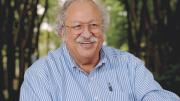Few who drop out of college for 27 years later return to join the Harvard faculty. But Marshall Ganz ’64, M.P.A. ’93, Ph.D. ’00, who left after his junior year to register black Mississippi voters (he wrote his senior tutor: “How can I come back and study history, when we are busy making history?”) didn’t complete his A.B. until 1992. He’s now a lecturer in public policy at the Kennedy School and a lecturer on social studies at the College. In the interval, he worked as an organizer with César Chávez and the United Farm Workers from 1965 to 1981; his 2009 book, Why David Sometimes Wins, recounts that saga and extracts its lessons. Toward the end, “The organization began to implode,” he recalls. “They were fruitful years that ended with a lot of hurt. A tragic story of success consuming itself. ” The son of a rabbi and a teacher, Ganz imbibed an ardor for social justice, but explains, “I never got engaged in the theoretical, ideological stuff. I was really engaged by meeting the people involved.” He later worked on electoral campaigns for politicians like Robert F. Kennedy ’48, Nancy Pelosi, and Jerry Brown; in 2008, he helped set up a Camp Obama operation that trained 3,000 organizers. Ganz met his late wife, Susan Eaton ’79, M.P. A. ’93, at his twenty-fifth class reunion; she died of leukemia in 2003. His training in “leadership through community organizing” has reached organizations ranging from the Sierra Club to the Episcopal Church to grassroots groups in Jordan and Syria. Ganz teaches courses on moral leadership, organizing, and “public narrative”--stories that transform values into action. “They’re not courses about leadership,” he says. “They’re courses in leadership.”








